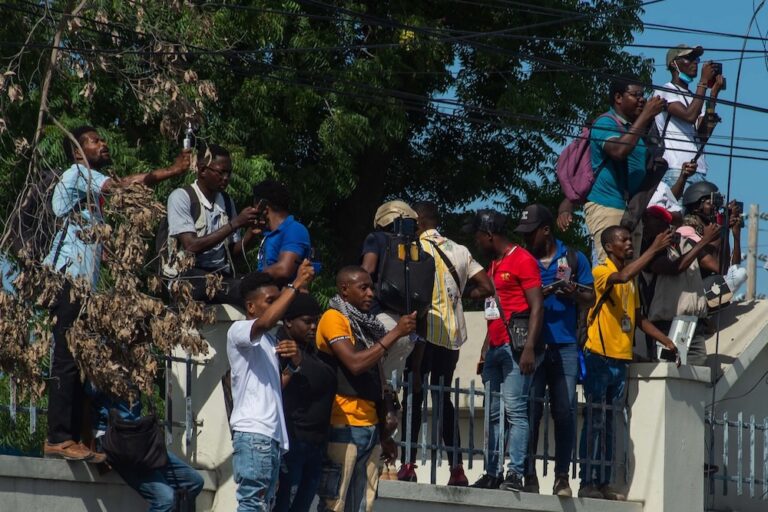(RSF/IFEX) – In a letter to senators, RSF urged Haiti’s elected representatives to lift the parliamentary immunity of Dany Toussaint, a senator from the west. “By voting in favour of this measure, you will simply be allowing the justice system to follow its natural course,” wrote RSF Secretary-General Robert Ménard. “If Mr. Toussaint is innocent, […]
(RSF/IFEX) – In a letter to senators, RSF urged Haiti’s elected representatives to lift the parliamentary immunity of Dany Toussaint, a senator from the west. “By voting in favour of this measure, you will simply be allowing the justice system to follow its natural course,” wrote RSF Secretary-General Robert Ménard. “If Mr. Toussaint is innocent, as he claims, only a fair and impartial trial will enable him to clear his name conclusively. Refusing to lift his parliamentary immunity would constitute a denial of justice and make him a permanent suspect,” explained Ménard. He also asked the senators to demonstrate an “exemplary” attitude with regard to the case of assassinated journalist Jean Dominique, which is being followed closely by Haitian society and the international community. RSF recalled that in January 2001, the upper chamber expressed its opposition to the examining judge hearing Senator Toussaint as a witness.
According to information collected by RSF, on 10 August, Minister of Justice Gary Lissade forwarded to the Senate Examining Judge Claudy Gassant’s petition for the lifting of Senator Toussaint’s parliamentary immunity. Toussaint has been indicted in the context of the investigation into the assassination of journalist Dominique. The minister also forwarded to the senators a decision by a judge in chambers who, questioning Judge Gassant’s impartiality in leading the investigation, demanded a stay in the execution of his petition. The case was referred to the judge in chambers by Toussaint’s lawyers, on the basis of the interrogation of several persons detained in the context of the case. These interrogations have since been declared illegal and the minister of justice imposed disciplinary action against their instigator, Magistrate Jean Gabriel Ambroise. Ambroise had acted on the request of the senator’s lawyers.
RSF recalled that in January, the Senate had rejected Judge Gassant’s request to hear Senator Toussaint as a witness, citing his parliamentary immunity. According to the Haitian constitution, parliamentary immunity can only be bypassed when a parliamentarian’s individual freedom is challenged, which was not the case in this instance. A great deal of pressure was put on the judge during this period. Senate Speaker Yvon Neptune stated that “a mere little judge [could not] summon someone from the great body.” The Senate also threatened to launch an investigation into Judge Gassant’s “exact motives.” More serious still, on 30 January, the magistrate was threatened by Member of Parliament Millien Rommage, who is close to Toussaint, after he had heard several friends of Toussaint’s as witnesses. Accompanied by several heavily armed men, Rommage had warned Judge Gassant that “if he continued,” he might riddle his car with bullets.
On 3 April 2000, Dominique, the best known Haitian journalist and political analyst in the country, was killed in the courtyard of Radio Haïti Inter. Dominique was the radio station’s director. Known for his independent tone, Dominique was critical of former Duvalier officials, the military and powerful families of the bourgeoisie. More recently, he criticised those he suspected within the Fanmi Lavalas, President Jean-Bertrand Aristide’s Party, of seeking to “divert the movement from its principles.” In a 19 October 1999 editorial, the journalist sharply challenged Toussaint’s ambitions. Toussaint was indicted in late May 2001. Since then, his supporters have organised several demonstations in which they denounced a putative “plot” against him and called for the examining judge’s arrest. At the same time, his lawyers launched a genuine “procedural war” aimed at slowing down the course of justice. In recent weeks, they have launched no fewer than six actions before four separate judicial bodies. These include actions before civil, appeals and cassation courts and summary proceedings. Five of the six actions are based on Magistrate Ambroise’s illegal interrogations.
Dominique’s assassination has been interpreted as a warning by the entire journalism community in Haiti.


